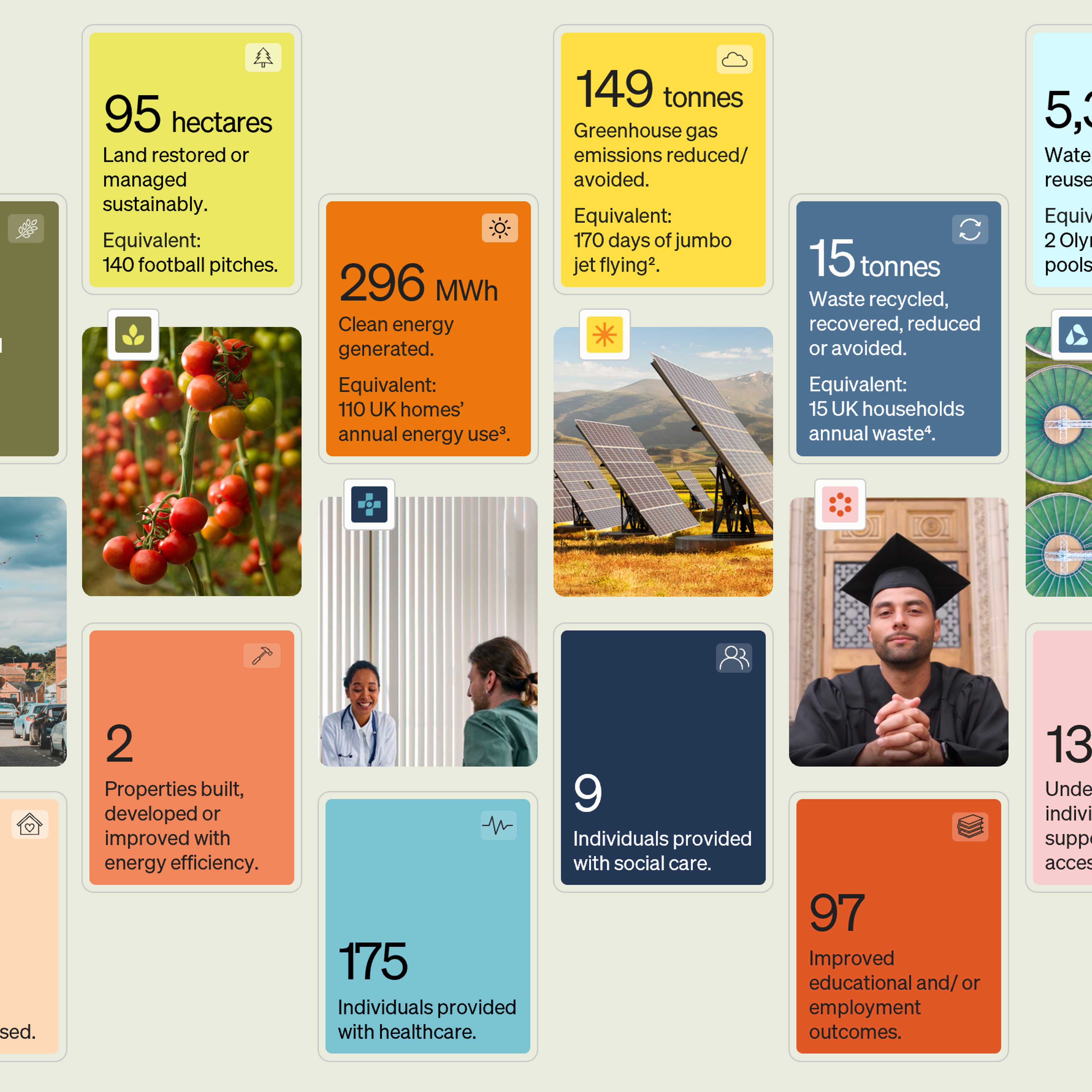Snowball CIO insights | Q4 2024

Sean Farrell, CIO, Snowball
Mon 17 February 2025

There has been a flurry of news flow since the beginning of the year. Donald Trump has been front and centre, but we have also seen Los Angeles wildfires cause unprecedented damage, DeepSeek challenges the assumption that existing AI leaders would profit from massive datacentre infrastructure spend, a ceasefire in Gaza, political turmoil in Canada and Germany, and speculation about a “Doom Loop” for the UK economy with higher borrowing costs forcing the government to cut back spending or raise taxes further.
Meanwhile, global economies are sluggish, climate change is not going away, and cost of living pressures, migration and the impact of conflicts remain major issues. The UK government faces the difficult challenge of lifting growth and dealing with escalating costs for healthcare and public services with very limited fiscal space.
Not surprisingly, markets have been volatile against this backdrop. It is worth stepping back from the noise and considering some medium and long-term implications for impact investing and the Snowball Fund portfolio.
Value creation
This volatility and unpredictability of events underlines the value of true diversification and innovation-driven investments based on fundamental value creation over time. Major global stock market indices have become very unbalanced so traditional equities-heavy portfolios have more concentration-risk than in the past.
America first
President Trump’s agenda is based on an “America First” approach with tariffs to expand US domestic activity and “encourage” other countries to buy more from the US. Expansion of fossil fuel extraction and cutting back of the Inflation Reduction Act’s (“IRA”) funding for renewable energy are also key elements. This looks likely to hurt renewable infrastructure investment in the US along with related contractors and suppliers of capital equipment (none of which Snowball has large exposure to), but the longer-term implications are more nuanced.
Although more US fossil fuel production and its withdrawal from the Paris Accord will make short-term progress on global greenhouse gas emissions more difficult, we expect some counter-balancing effects.
Export of US natural gas is likely to displace production from Russia and others which have a worse record on methane leakage (methane is up to 84x as powerful as a greenhouse gas as CO2). It is also likely to make new capital-intensive projects such as deep offshore drilling less viable and therefore may avoid “locking in” continued production for so many years in the future.
Recognition that neither Russia nor the US are particularly reliable partners may encourage energy importers like Europe to accelerate efforts to become more energy-independent with renewables, particularly because they are also more cost-competitive than natural gas.
Renewables projects are often viable without subsidy and many States will continue their supportive policies. Commentators also argue that full repeal of the IRA is unlikely given small Republican majorities in Congress and the fact that 78% of IRA investment to date has flowed to Republican districts. It is worth noting that solar and wind installations grew during Trump’s first term, increasing 32% and 69% respectively, with Texas being the largest State for wind power generation and 2nd largest for solar generation.
Snowball’s own investment managers had seen that IRA funding was frequently distorting the incentives for climate-tech companies and projects, with the “game” for many becoming about chasing IRA funding and moving activity to the US. A renewed focus on solutions that are economically viable without IRA subsidies, and a rebalancing of activity back towards Europe and Asia may create a more attractive investment environment for the long-term.
Tariffs and trade friction may lead to higher inflation, and higher interest rates may have detrimental impact on certain investments, but would boost returns in fixed income and inflation-linked investments.e.
Higher input costs and riskier supply chains enhance the value of circular business models, efficiency enhancements and alternative technologies that can utilise more secure, cheaper inputs such as waste by-products. This benefits companies with innovative solutions such as those Snowball targets in its private and public equities strategies.
If the US experiences a boom, it is likely to help restart mergers and acquisitions (M&A) and initial public offering (IPO) activity, which has been frozen for several years, and improve the valuations and capital-raising environment for venture capital and private equity companies.
Demand for impact investing
In the UK, the Labour government needs to attract private sector capital to boost growth and investment in areas such as infrastructure and housing development. It also needs to drive reform and innovation in public services and mitigate issues such as the ticking time bomb in healthcare and social care. Impact investment is needed across a wide range of strategies from renewable energy infrastructure, to social/supported housing, to venture capital, to social outcomes contracts.
Despite widespread headlines about outflows from environmental, social governance (ESG) funds over the last 2 years, investor allocations to impact investing overall have continued to grow (the Global Impact Investing Network now identifies $1.6 trillion invested) and even in the US, the US Sustainable Investment Forum identified that 73% of survey respondents still expect the sustainable investment market to grow over the next one to two years. A deeper base of capital is supportive for Snowball portfolio companies that can more easily raise further capital at higher valuations for expansion.
Snowball Impact Investments Fund
Our impact secondaries fund managed by North Sky Capital delivered strong returns in its first year and is helping to mitigate the “J-curve” effect¹ in our private markets portfolio. Several early investments began to generate liquidity sooner than expected. The manager continues to find attractive opportunities that span climate and health themes at material discounts to net asset value (NAV). In the new year, there was also positive news for NatureMetrics (backed by Ananda Impact Ventures), which successfully raised $25m in Series B funding in an up round. NatureMetrics is a women-led biodiversity monitoring and nature intelligence platform that enables customers to measure their impact on nature at a sub-species level across sites and time periods (which is increasingly required by regulators) and thereby move towards nature-positive action.
The fixed income, credit and diversifiers asset class generated +6.1% annual returns and contributed +1.4% to overall Snowball Fund returns. Returns were particularly strong in emerging markets lending and in social outcomes contracts, the latter benefiting as payments were made for the successful delivery of social outcomes across a range of areas like homelessness prevention support, family therapy to prevent children from being taken into care and supporting refugees into stable housing and employment.
Real assets contributed -1.6% to Snowball annual returns, driven by further widening of share price discounts in listed renewable energy infrastructure trusts on the back of a sharp rise in Gilt yields towards year end. However, it is worth noting that the share price weakening has resulted in all-time high dividend yields of c.10%, combined with good earnings visibility from contractual cashflows. Boards of these trusts have also been actively selling assets, buying back shares and paying down debt, which gives us more confidence about the “latent value” in this impact asset class.
Public equities contributed +0.2% to Snowball annual returns. They underperformed mainstream benchmarks in 2024 primarily due to a lack of exposure to the so-called Magnificent Seven tech giants, which accounted for more than 53% of total returns in the S&P 500, as the global stock market reached record levels of concentration. Size and style biases were also a headwind in 2024, but as two of our managers with the longest track records (Impax and WHEB) point out, there are reasons to be hopeful as the smaller innovative fast-growing companies to which impact funds tend to have the most exposure tend to outperform in deregulatory environments.
Finally, building on our recent work to quantify and illustrate the impact that £1m in the Snowball Fund contributes to, this quarter’s report includes an illustration comparing Snowball Fund impact performance across a number of metrics with a “traditional” non-impact public equity fund, which demonstrates the significant impact outperformance of the Snowball portfolio across a range of critical social and environmental themes.
¹The J-curve is the term commonly used to describe the tendency for investors in closed-end funds to experience negative returns in the early years of a fund's life during its investment phase as the fund draws capital from investors and fees are taken before then entering a period of recovery.

